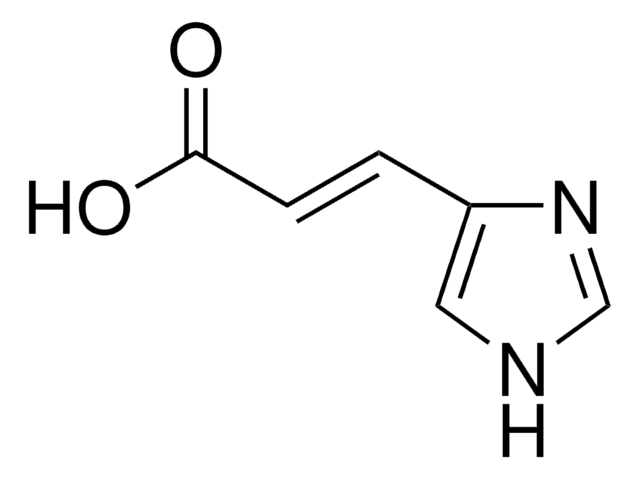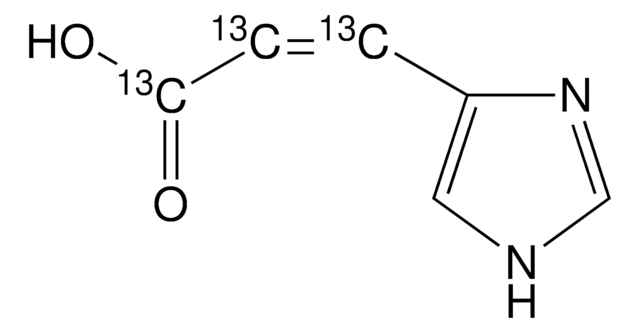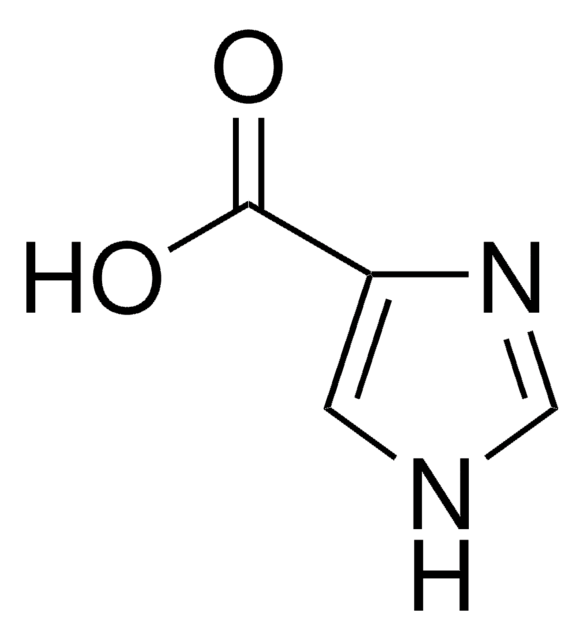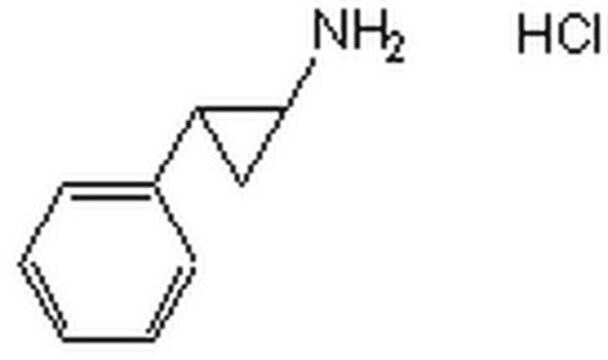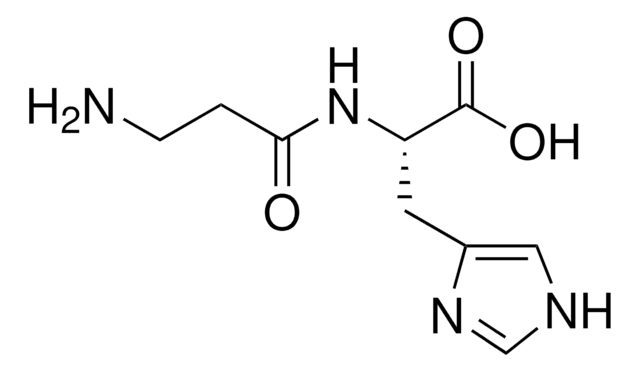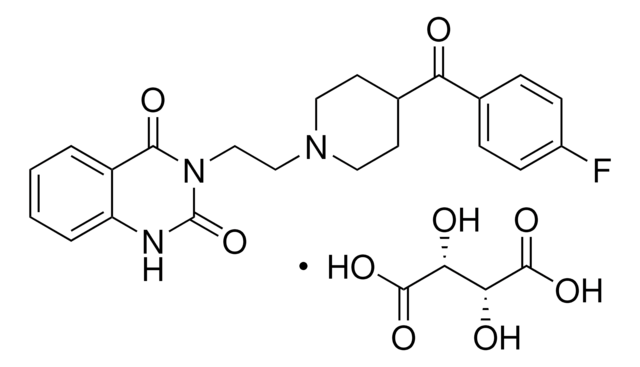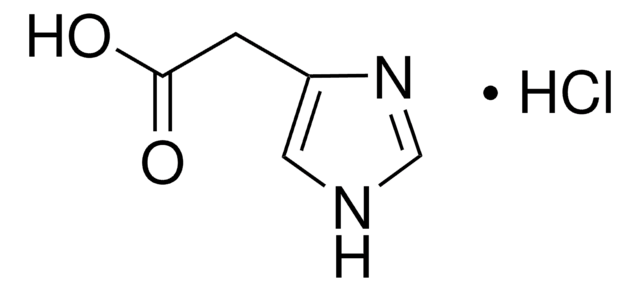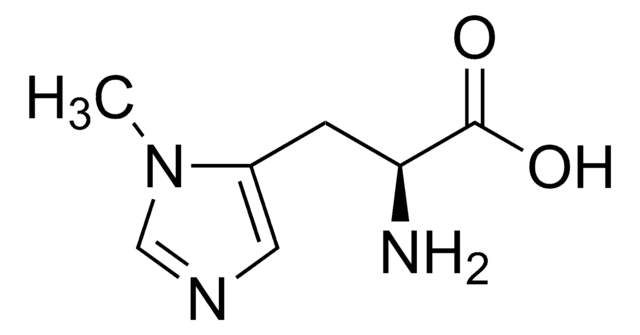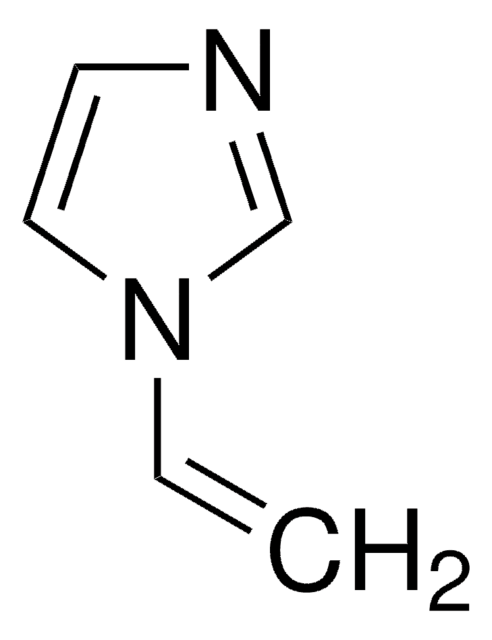U6883
cis-Urocanic acid
≥98% (HPLC), solid (fluffy)
Synonym(s):
cis-3-(1H-imidazol-4-yl)-2-propenoic acid, cis-UCA
About This Item
Recommended Products
Product Name
cis-Urocanic acid, ≥98% (HPLC), solid (fluffy)
Quality Level
Assay
≥98% (HPLC)
form
solid (fluffy)
storage condition
protect from light
color
white
solubility
H2O: >10 mg/mL
storage temp.
−20°C
SMILES string
OC(=O)\C=C/c1c[nH]cn1
InChI
1S/C6H6N2O2/c9-6(10)2-1-5-3-7-4-8-5/h1-4H,(H,7,8)(H,9,10)/b2-1-
InChI key
LOIYMIARKYCTBW-UPHRSURJSA-N
Application
- to study its protective effects on autoimmune encephalomyelitis
- in sample preparation to study the distribution of skin chemical components by line illumination Raman microscopy technique in Line-focus illumination mode
- as a standard to study the levels of cis-UCA and to check its effect on immune response in multiple sclerosis patients
Biochem/physiol Actions
Preparation Note
Storage Class Code
11 - Combustible Solids
WGK
WGK 3
Flash Point(F)
Not applicable
Flash Point(C)
Not applicable
Personal Protective Equipment
Choose from one of the most recent versions:
Certificates of Analysis (COA)
Don't see the Right Version?
If you require a particular version, you can look up a specific certificate by the Lot or Batch number.
Already Own This Product?
Find documentation for the products that you have recently purchased in the Document Library.
Customers Also Viewed
Articles
We offer many products related to serotonin receptors for your research needs.
Our team of scientists has experience in all areas of research including Life Science, Material Science, Chemical Synthesis, Chromatography, Analytical and many others.
Contact Technical Service